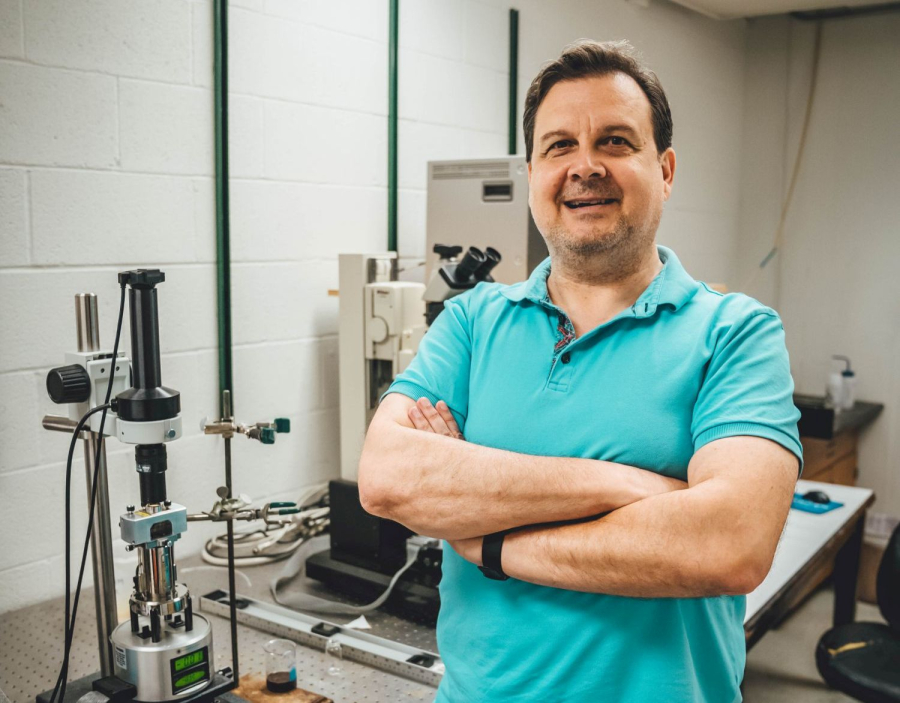It was a bit of a “full circle” moment for Peter Vekilov, Moores Professor in the William A. Brookshire Department of Chemical and Biomolecular Engineering, to learn he was the winner of the 2022 Frank Prize from the International Organization for Crystal Growth.
“I was extremely proud and honored,” he said. “I was a graduate student in the 1990s in the Soviet Union, and my advisor, Alexander Chernov, got the inaugural award in 1989.”
As a result, Vekilov said as far as he is aware of he and Chernov are the first pair with the advisor-mentor relationship to both have earned the Frank award. According to the IOCG, the honor is given every three years for “significant fundamental (not necessarily theoretical) contributions to the field of crystal growth.” Vekilov is the 14th recipient in its 34-year history.
“It’s a huge honor, so that’s why I felt both proud and humbled,” he said, adding that the group has provided served as a valuable source for research organization and sharing.
Vekilov has been a member of the IOCG since 1992, when he attended the conference in San Diego. It took doing on his part – he was doing research in his native Bulgaria at the time, and he had to raise funds to afford the flights. It was his first visit to the United States, and it included an unexpected, overnight layover in North Carolina after a canceled flight.
Despite the difficulties with attending his first IOCG conference, Vekilov hasn’t missed one since. He will receive the Frank Prize during this year’s conference in late July in Naples, Italy.
Vekilov pointed to Chernov and his postdoctoral mentor, professor Franz Rosenberger, as being significant positive influences in his development. He also noted that his success would have been impossible without his students over the years – 6 current Ph.D. students, 19 graduated Ph.D.s, 24 postdoctoral students, and several visiting scholars and undergraduate researchers.
“There were very talented, and several of them are professors in their own right, and they’re producing their own Ph.D. students now,” he said. “I’m extremely proud of them. I’m also proud that all of my students will graduate, and they find jobs before they graduate. That’s a very important point for me. I want to make sure that I train people who will have a fulfilling, lifetime career stuff.”
When it comes to his future research goals, Vekilov said his group is still building on its finding from 2020, which overturned a century-old belief on how crystals formed. His lab has published 20 papers since then, as the research has proven fruitful. Vekilov added that they are starting to use artificial intelligence and data science in their methods, to account for the permutations of solvents and structures available.
